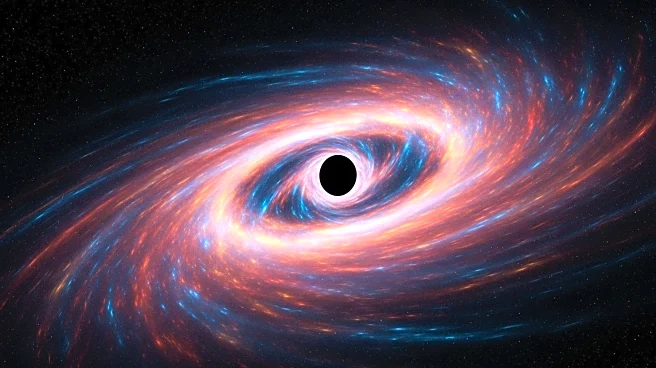What is the story about?
What's Happening?
The Event Horizon Telescope collaboration has observed significant changes in the magnetic field of the supermassive black hole M87*, located 55 million light-years away. Using data from 2017, 2018, and 2021, scientists mapped the polarization of M87*'s magnetic field, revealing a complete flip in direction over the years. This marks the first time such a change has been observed around a black hole. The findings suggest dynamic cosmic weather outside the event horizon, while the black hole itself remains stable. These observations could help understand how black holes feed and power their extreme jets.
Why It's Important?
The study of M87*'s magnetic field changes provides insights into the behavior of supermassive black holes and their impact on surrounding galaxies. The magnetic field is crucial in forming jets that regulate star formation and distribute energy across vast distances, affecting the life cycle of matter on cosmic scales. Understanding these processes can enhance theoretical models of black hole dynamics and contribute to the broader field of astrophysics, potentially influencing future research and technology related to space exploration.
What's Next?
The Event Horizon Telescope plans to conduct rapid-fire observations in 2026 to capture the first movie of M87*, offering deeper insights into its magnetic environment. These observations aim to further explore the dynamic and turbulent conditions around the black hole, potentially leading to breakthroughs in understanding black hole physics and the mechanisms behind jet formation.
Beyond the Headlines
The research highlights the complexity and variability of cosmic phenomena, challenging existing theories and pushing the boundaries of astrophysical knowledge. The ability to observe and analyze changes in a black hole's magnetic field over time opens new avenues for studying the universe's most enigmatic objects, potentially leading to discoveries that reshape our understanding of space and time.















